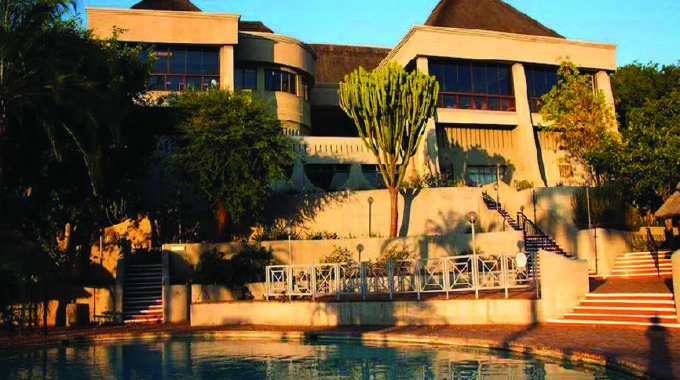South Africa backs Zim debt resolution

Hebert Zharare
South Africa has thrown its weight behind Zimbabwe’s arrears clearance and debt resolution efforts being championed by African Development Bank (AfDB) president, Dr Akinwumi Adesina, with Harare’s neighbour saying the economic challenges in “Zimbabwe have a spillover effect on South Africa.”
Mr Enock Gondongwana, South Africa’s Minister of Finance, said this while addressing the oversubscribed roundtable meeting on Zimbabwe’s arrears clearance and debt resolution process dialogue convened on the sidelines of the AfDB annual general meetings in Sharm El Sheikh in Egypt last week.
Mr Willie Nakunyada, Executive Director for Zimbabwe at the International Monetary Fund, The World Bank Director for Regional Integration for Sub- Saharan Africa, the Middle East and Northern Africa, Ms Boutheina Guermazi, UK representative, Mr Phil Stevens, who is also Acting Director International Financial Institutions Department, Mr Edward Kallon, the UN resident representative in Zimbabwe, Mr Nicholas Radin, Switzerland Alternate Governor at the AfDB and Mr Elias Magosi, Sadc Executive Secretary, all supported efforts to help Zimbabwe resolve her sustainable debt.
The only discord came from the US Assistant Secretary of Treasury, Mr Erick Meyer, who said because of the existence of the Zimbabwe Democracy and Economic Recovery Act (ZDERA), his government would not participate in financing options for Zimbabwe through the AfDB or otherwise under the country’s arrears clearance and debt resolution.
But South Africa stood by Zimbabwe, arguing a debt-ridden Zimbabwe also affected Pretoria given the political, cultural, and economic relations that existed between the two sisterly republics.
South African exports to Zimbabwe were estimated at US$3,22 billion in 2022 according to the United Nations COMTRADE database on international trade, making Zimbabwe a major stakeholder when it comes to regional trade.
In his address, Mr Gondongwana said the two countries’ economic, cultural and political relations were so interwoven that they were easily affected by developments on either side.
“You will realise that any challenge that affects Zimbabwe also affects the South African economy. So the challenges that are affecting Zimbabwe have a spillover effect on South Africa and the resolution of the Zimbabwe challenge is the resolution of the South African challenge.
“So, what is my message today? My message is simple. Dr Adesina said all who came here are concerned about Zimbabwe. I want to say our presence here is to demonstrate that we are concerned about Zimbabwe.
“Therefore, the resolution of the Zimbabwe (deb) situation will be in our best interest. We support this initiative (arrears clearance and debt resolution) with all our efforts,” said Mr Gondogwana.
Zimbabwe’s total debt stands at about US$17,5 billion, of which 80 percent is in arrears, a figure Dr Adesina said was too big for the country, calling for debt rescheduling as has been done for other African countries.
However, Zimbabwe has not been waiting for debt relief strategies to work but has been making token payments to multilateral development banks and its Paris Club creditors.
Mr Gondongwana said due to economic challenges, which were a result of the unsustainable debt, there were thousands of Zimbabweans now working in South Africa.
He said: “Actually registered people from Zimbabwe working in South Africa as a result of economic challenges in Zimbabwe is about 215 000 – not old ones (figures) – but newly registered ones.
“The ones that come in (daily) you can go into Beitbridge and spend a day there – there is a railway line there – people shopping in South Africa doing all of these things, that’s integration.”
Dr Joaquim Chissana who President Mnangagwa also appointed high-level facilitator to the arrears clearance and debt resolution dialogue, is helping Dr Adesina in executing the assignment they were given by President Mnangagwa.
Mr Godongwana said talking of cultural, economic and political relations, many people would be surprised to hear that former President Chissano and South African deputy president Mr Paul Mashatile, belonged to the same tribe in Mozambique.
“There is a cultural relationship between ourselves and the people of Zimbabwe. The cultural relationship between ourselves and Botswana and you can go on. Politically, we had all our headquarters in Zambia.
“So, it is that relationship that exists among these countries. Even politically before the dawn of democracy in South Africa, there has been this interchange and the majority of people went to work in the mines in South Africa.
“Our famous singer Hugh Masekela captured this thing in a song saying ‘isithimela sibheke eZimbabwe’, characterising this migration of workers from across the region to work in the gold mines in South Africa. That has been the integrated way in which our relationship has existed,” he said.
“We do have our own challenges and I was jealousy of the Minister of Finance and Economic Development of Zimbabwe (Professor Mthuli Ncube) who has been enumerating some of the changes and growth in Zimbabwe.
“I wish I could have a similar situation but I do not. I have got my own electricity challenges which have undermined my growth for the past few years. If you track our performance, it has to do with our electricity.”










Comments